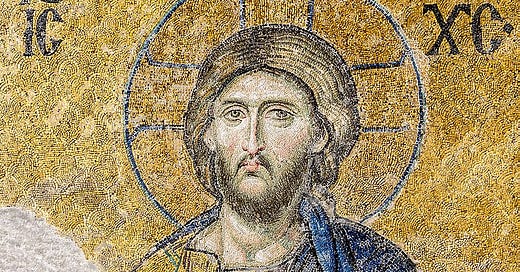The Newest Heresy: Jamesianism
Did I just discover a radically new and vital approach to Christian theology? Maybe
I use the word ‘heresy’ in a flippant way. Just like the profusion of heresies in the first few centuries after the Crucifixion this is not an effort to undermine anyone’s faith or understanding. Unlike those ideas (which usually seemed pretty certain of correctness, even unto death) this is just an idle and speculative avenue. If you’re not a Christian this probably won’t seem as interesting to you but I would still pay attention: the roots of Christianity commingle with some very wise and strange and old ideas-and yield one of the best ethical systems ever produced (even if they are not always very carefully adhered to). I hope my Christian readers will tell me if this idea has already been propounded by an other(s). It formed in my brain de novo but it’s hard for me to believe that any worthy theological speculation has gone unexplored over two millennia of furious debate.
So: the death of Christ is explained as the payment of a great moral debt. [NOTE: I have an unfinished piece on the strange and profound allegory of ‘Adam and Eve in the Garden’ which I hope to finish and post today.] Adam and Eve, in their dark and greedy curiosity, chose a world of immense pain and death, for all living things. In order to expiate the Creator and pay the outstanding balance, such as it was, God had to become incarnate. His essence created and nurtured a special relationship with one human, his son, who then lived humbly and with compassion (and according to Jewish law) and intentionally submitted himself to the most brutal punishments of worldly authority as a symbolic enactment of the suffering of all humanity. He was executed, symbolically re-enacting the death that all creatures experience…and then was born again, showing his followers in the most clear and immediate fashion the new cosmic order in which death is not death but simply a passing from this world in the present. His self-sacrifice bought the promise of eternal life for all humans (or sentient creatures).
This is my understanding of the central event and reasoning of the Christian faith. Here is my line of interrogatives: Christ is explained as a sacrifice to expiate a creator God. But he was born and lived in a society in which blood sacrifices were an annual tradition, where the temple in Jerusalem took in and ritually slaughtered thousands of animals per year in praise of and supplication to their God, Yahweh (or Jehovah, or Hashem). These practices stretch back into the mists of time before written records and they are, if not universal, global and extremely common in hundreds of known early cultures. What if the practice of offerings was based on a profound misunderstanding? What if it was a practice which God permitted among his followers-since it was common and primitive and satisfied certain features of early human psychology-but this was never God’s precise wish? All but the genuine fundamentalists must concede that scripture isn’t perfect (if so then which one?) and that all humans who claim the inspiration of God don’t have it, and those who have it could misunderstand or stray from the words sent from the divine. God may be perfect but his will and design must be immediately warped and corrupted by the imperfection of humanity. If there is a receiver between God and humanity it is buggy and often distorted or broken. It seems that God is content to allow the traditions of non-chosen people to become grafted onto his faith (assuming this is Christianity) as we see with a hundred additions and accretions today, beginning with the Christmas holiday itself. (Here I presume greatly): It seems that God has some fundamental truths and central priorities to accomplish and communicate and he is content to let the details be changed or invented by humanity. Perhaps (and there is a good chance of this) those human changes are part of his design as well.
What if the entire concept of blood sacrifice was such a human invention? God permitted and possibly even commanded it because it demonstrated faith and sacrifice to a figure who was loved and feared in terms that were already understood by the Israelites from their polytheistic origins (traces of which stretch into the early books of the Bible) but God never desired blood sacrifice; it was never a divine practice in its essentials.
That would mean that the mission of Christ would also have to be reinterpreted, now that our culture has changed. If Christ was explained to the citizens of the Iron Age as a blood sacrifice we can be fairly sure that those terms are not too dissimilar from God’s intention but are still a distortion.
Here I stop my speculation and leave the rest for later (or others). What could blood sacrifice or carnal debt or symbolic suffering and death really represent in terms that may not be any closer to the vast and unfathomable will of God… but might be more lucid and comprehensible to modern people, who no longer sacrifice flesh to our God(s)?
What do you think?





